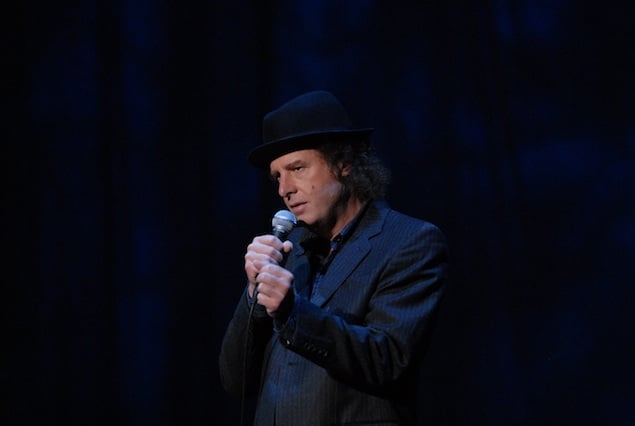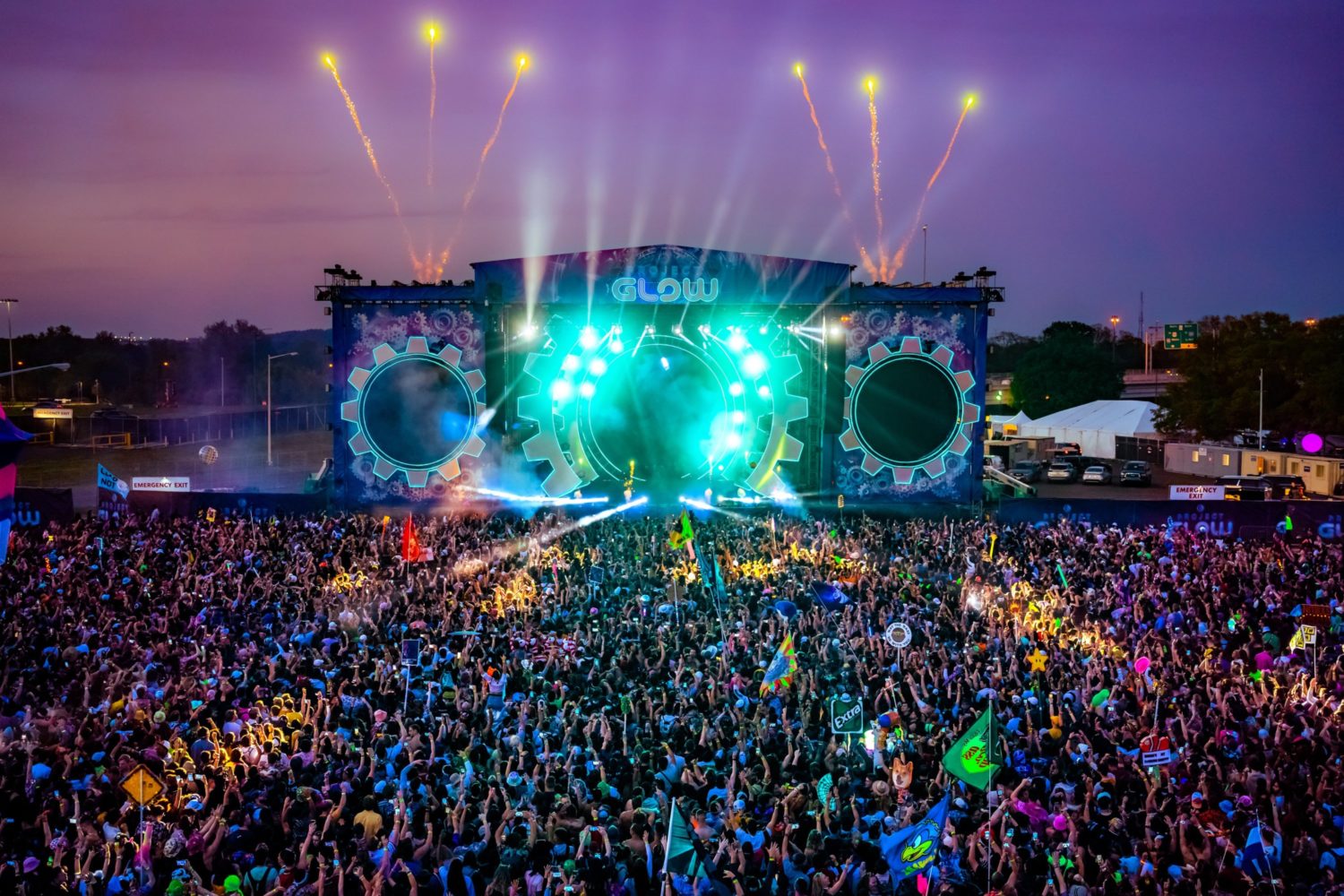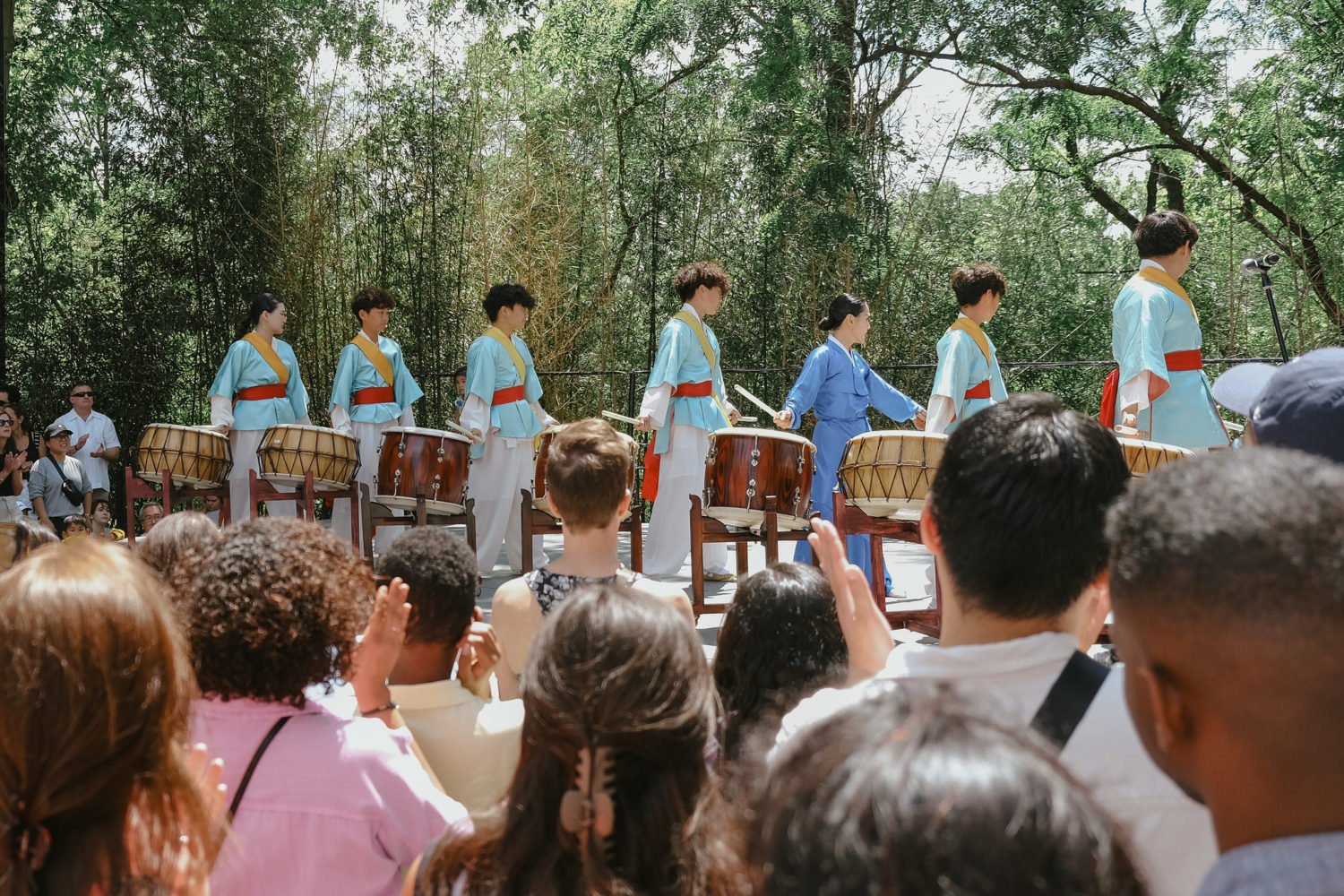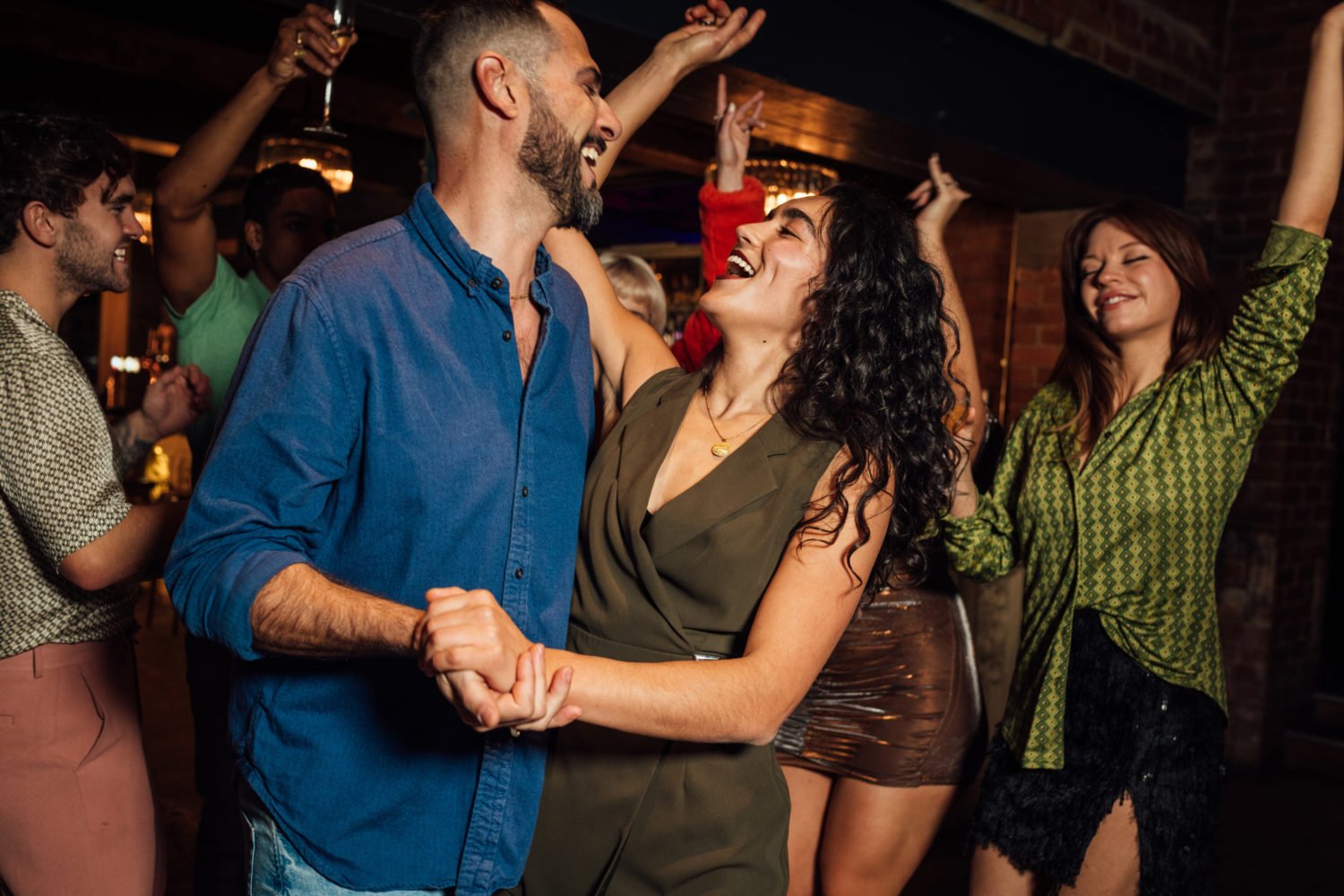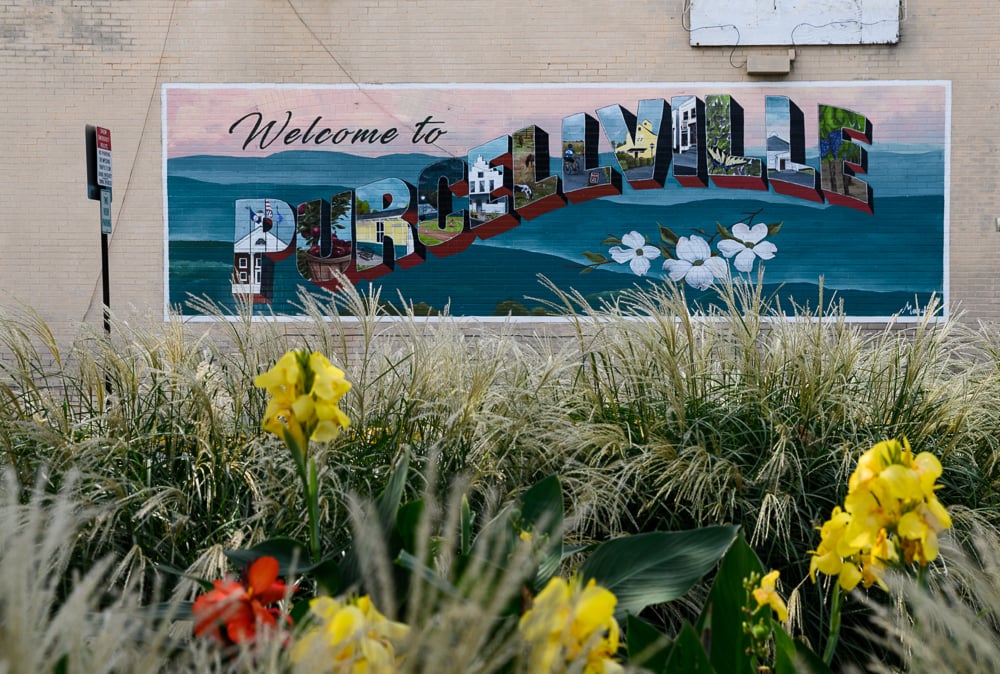If you’re into comedy, you’re probably familiar with
Steven Wright. Even if you haven’t experienced his trademark barrage of deadpan, absurdist one-liners—and with two Grammy-nominated standup
specials and iconic roles in films such as
Reservoir Dogs,
Half-Baked, and
Canadian Bacon, it’s hard not to have—if you’ve ever watched the comedic stylings of
Demetri Martin or the late
Mitch Hedberg, you’re at least acquainted with
his influence. Wright has been doing comedy for more than 30 years,
starting with standup
at a Boston comedy club/Chinese restaurant and snowballing into
regular appearances on the late-night circuit, TV shows, and
the big screen. Before his show at the Warner Theatre this
Friday, June 22, we chatted with the Academy Award winner (after
a slight delay due to scheduling conflicts) about stage fright,
odd jobs, Twitter, and the phenomenon of
DC Cupcakes.
Sorry about that, my last thing ran long.
No problem. Have you been doing a bunch of interviews this morning?
Not a ton, but a bunch of ’em. Where do you live?
I live in Virginia.
I don’t even remember the layout [of Washington]; I don’t know if that’s closer or farther out. Washington’s a good city;
it’s very interesting.
When were you here last?
I was there eight months ago. I did some show, a private show; I always stay near Georgetown, and I don’t get to walk around
much. I didn’t go to see monuments or anything. We don’t have enough time to do that.
So you didn’t wait in line at Georgetown Cupcake?
No. I’ve never heard of that. Is that a famous thing?
Yeah, they have that reality show,
DC Cupcakes. It’s basically about the drama of running a high-end cupcake company.
[laughs] Oh, my God, that’s fantastic. Imagine who thought of that: “Hey, I got an idea, listen to this,” and then he tells
them that, and they say, “Yes, that’s great.”
I guess it’s a little crazy. So I saw you graduated from Emerson, in Boston; I actually graduated from there, too.
You did! When? I had fun there; some of my best
friends that I know today, half of them I met at that school. I had a
great
time. It was in a different place when I was there, on Beacon
Street near the Public Garden, between Arlington and Berkeley.
But I loved it because of the people more than what I learned.
There were so many weird people.
What did you study there?
Mass communication, radio. I thought I would be a guy on the radio.
I’ve read interviews where you referred to yourself as an introvert. Do you still get stage fright?
It doesn’t scare me anymore, but in the beginning it
just horrified me. I was way more introverted than I am now, and I
wanted
to try being a comedian, but going onstage, when I was sitting
at the open mike night that first time, my legs were shaking.
But I wanted to try to be a comedian so bad I went on even
though I was scared out of my mind, and then I got a bit more relaxed.
It’s never gonna be normal—it’s never like you’re walking
across the living room to get a Pepsi and come back—but I forced
myself to do it.
Was there a particular experience that convinced you that was what you wanted to do?
It was from TV, watching Johnny Carson on the
Tonight show when I was in 11th grade. I had to watch
it because my older brother decided what we were going to watch, because
he
was older, and then I started loving it. I loved watching him
coming out and doing the monologue, and I loved the comedians
coming out. I’d never seen that before: Here’s this guy coming
out and he says all this stuff he made up. Some people I never
saw ever again; sometimes they were on there many times—Richard
Pryor, Robert Klein. From watching it a couple years in high
school, I got it in my head that [I wanted that].
What did your family say when you told them you wanted to be a comedian?
I never told anybody. I never told my family. I’m
superstitious; I thought if I talked about it, it would never happen. I
only told one friend of mine, and then I was doing it, so then I
was telling my family what I was [already] doing, so the
jinx was over.
So does your family think you’re funny? Do they come to your shows?
They do. When I’m in the area, they come to my shows.
They think I’m funny. But my mother is from another time—the funniest
person to her is Lucille Ball; that’s what she loves. A lot of
times she tells me she doesn’t know what I’m talking about.
I know if I wasn’t her son and she was flipping through the TV
and saw me, she would just keep going.
Your bio says before you started comedy you had a “bevy of odd jobs.” Do you remember what the oddest one was?
None of them were freakily odd. . . . I tested radios,
assembled radios and then tested them. I parked cars. I painted
Emerson!
I had a job painting the dorms during the summer, and my friend
Mike was in charge of the paint crew. We would be in the room
all day painting and it was so boring, but we’d be talking and
joking. He’s one of my best friends from that time. Years later
I made an HBO film [The Appointments of Dennis Jennings]—we made it
together, and we won an Academy Award. I worked in Reno—I walked through
the casino wearing a belt with change
in it in case people wanted to break paper money, from midnight
to 7 in the morning. I was in Aspen in 1979, and I had a job
shoveling snow off the roofs in the building so they wouldn’t
cave in. That was our job, and we’d do it four days a week.
You play the guitar, right? Do you have any other hidden talents, like being able to cook with your feet or something?
[laughs] Did you just think of that? That’s
fantastically bizarre. No, I can’t cook with my feet. I paint; I draw
and paint,
I’ve been doing that since I was in third grade, drawing
realistically and then changing to abstract art. That was my first
creative thing before guitar or comedy. It’s so great because
it’s abstract, because you just go on a feeling of what you
paint; the comedy has to be so structured. It has to make
absolute sense; even if it’s crazy, there has to be a logic to it.
[Painting] is a whole other way of creating.
When it comes to comedy, what’s your writing process like? Do you find jokes everywhere, or do you have to sit down and say,
“I’m going to write 15 jokes today”?
I sat down when I first started the first year, but
then my mind got exercised, my mind was looking for jokes . . . like I
did pushups with that part of my brain, I thought, “Oh, that
could be a joke.” I’m just reacting off the world; that’s how
all the material is other than the very beginning. Because
you’re just seeing—the world is a big mosaic thing, and you’re
taking one little square from there and putting it over there;
it’s all from noticing. I remember them and write them on a
little scrap of paper, a receipt or something.
I noticed you’re on Twitter. Is that actually you, or does someone else tweet for you?
I was doing that, but I got bored with it, so I
stopped. Right before I was going to do it, I decided to write a really
long
story, so I did it a couple of sentences at a time—it’s about a
boy named Harold. He was in elementary school. I thought,
just for no reason, Why don’t we do that? And then I just got
bored.
There’s also a Fake Steven Wright account, have you seen that?
There’s what?
It’s an account called Fake Steven Wright; there’s a picture of you and they post a bunch of jokes in your style.
They have my picture? Did you ever read the jokes? Were there any that you liked?
I read a few of them. I guess it’s sort of flattering.
Yeah, that someone would be into it to that point.
You’ve been in lots of movies. When people stop you on the street, is there a role they call you out for the most? Or is it
mostly, “Hey, you’re Steven Wright, I love your standup”?
Most of it is the standup, way more than the movies. But then the movies, there’s different age groups—people in their forties
point out
Reservoir Dogs because I was the guy on the radio; then there’s a younger crowd where it’s
Half-Baked, like 17 to 30. Some of those people don’t even know I do standup. They get stunned. They love that movie; they’ve either
seen it 30 times or they’ve never seen it. Have you seen it?
I have, but not for a long time. But I grew up watching
So I Married an Axe Murderer.
That’s hilarious! That was so much fun because they
let me make up most of the lines. That movie’s hilarious. It’s not
known—for
some reason it’s not on the top list of funny in people’s
minds, although I think it’s one of the funniest movies. Certain
movies are not in the public consciousness.
Who would you say is the funniest person you’ve ever worked with?
Well . . . probably
Jim Jarmusch, the movie writer/director, because I did a little thing with Jim and
Roberto Benigni called
Coffee and Cigarettes, and the three of us wrote that together. He’s really funny; he’s a brilliant filmmaker, and talking to him is funny.
John Candy—I was in
Canadian Bacon with him. That was real funny. He was a really nice guy.
What’s your next project?
I’m just writing things—not a specific thing, just writing ideas down for jokes and playing the guitar. I don’t have a specific
project, I’m just reacting to the world and writing stuff down.
Well, I’m sure you have to get to another interview; is there anything I forgot to ask you about?
You didn’t ask me if I know anything unusual about the
presidents. And I do; I know one thing. Grover Cleveland did two terms
as a president, but they weren’t in a row. He was president,
and then someone else was president, and then he was president
again. That’s my last thing. When I’m executed, that’s what I’m
going to say.
Are you planning on being executed soon?
No. Are you taping this?
Steven Wright performs at the Warner Theatre this Friday, June 22. Tickets ($30 to $40) are available through the Warner’s
website.

